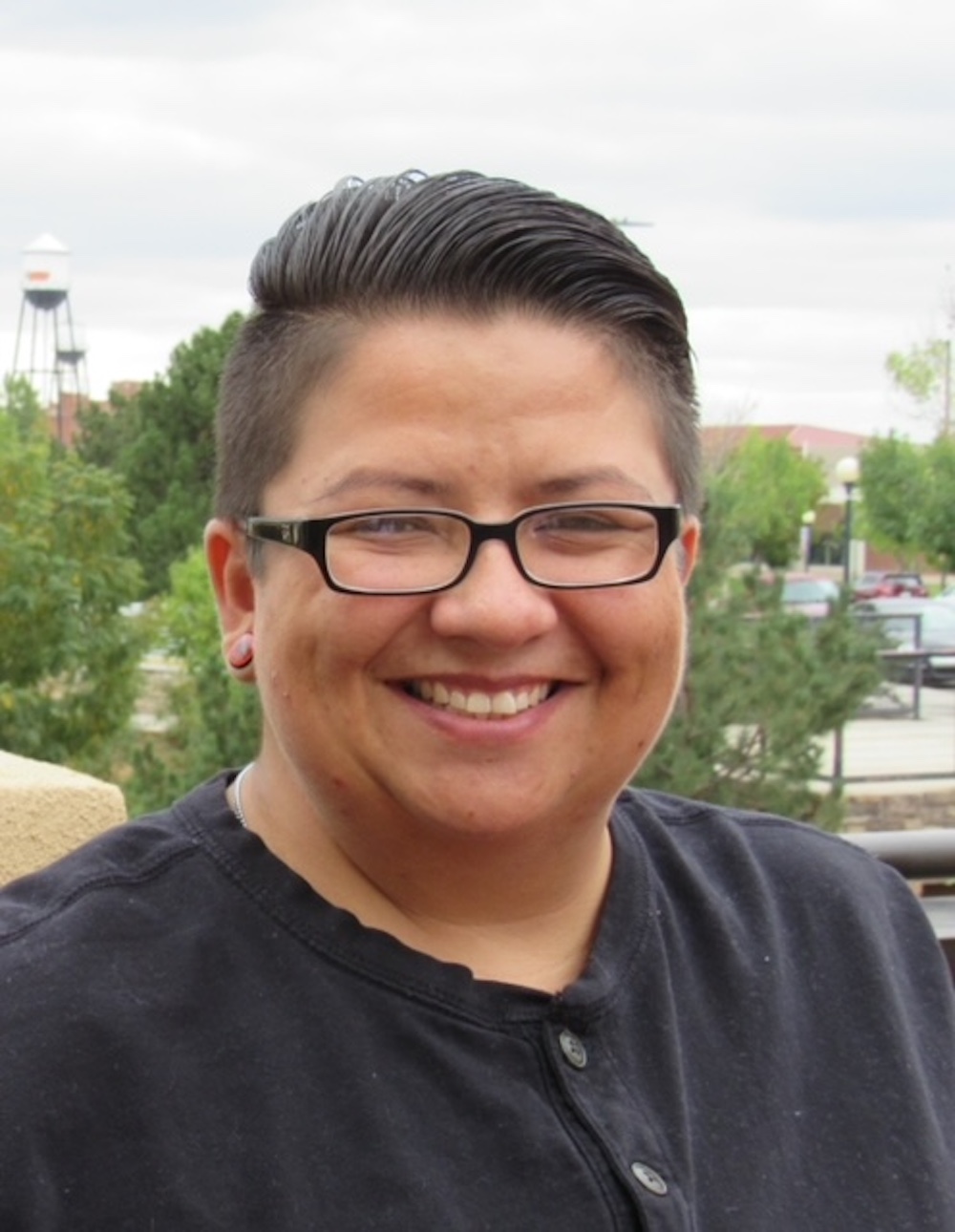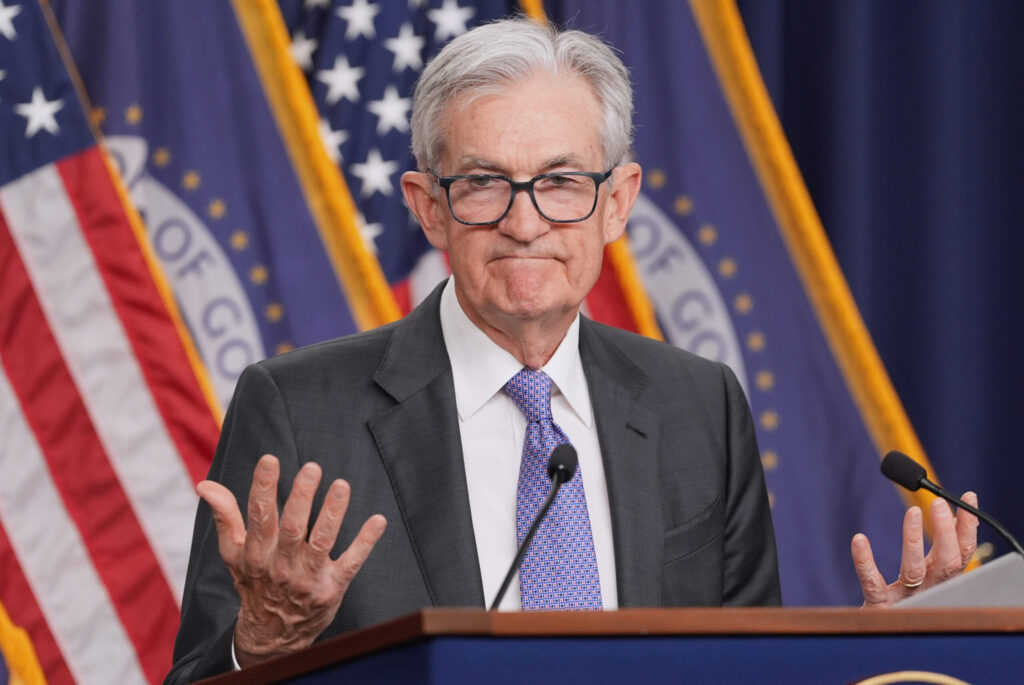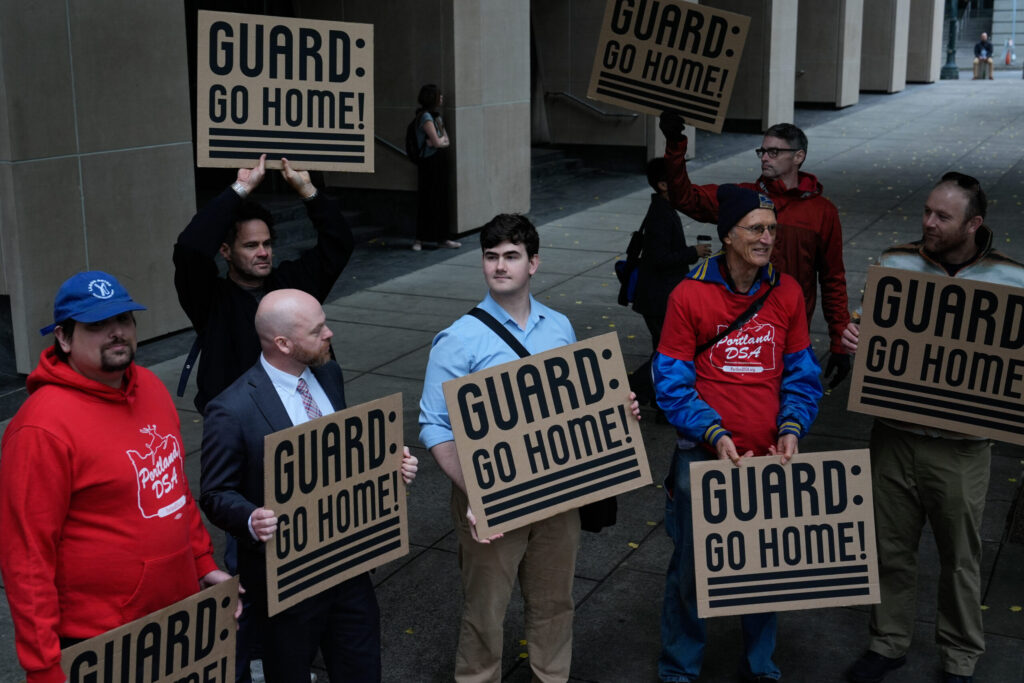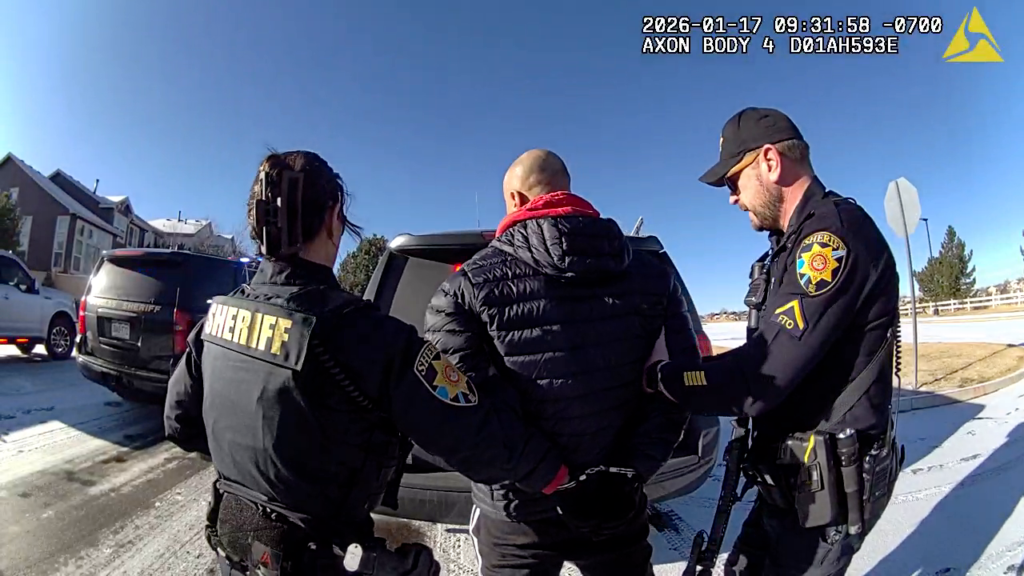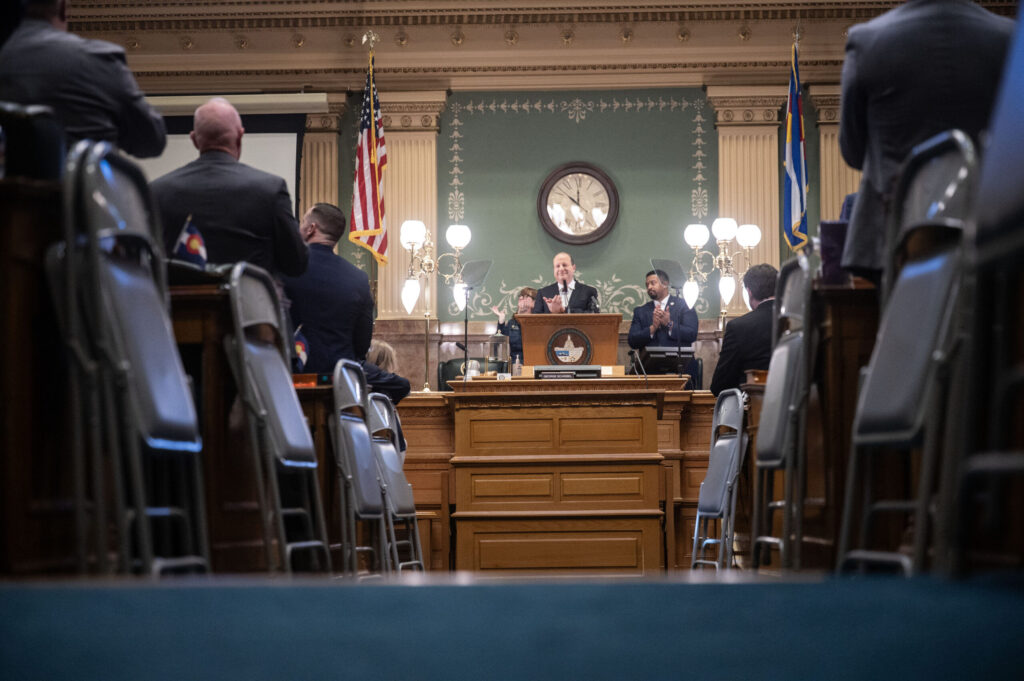Q&A with Josette Jaramillo | Reframing the conversation to workplace issues

Josette Jaramillo was elected this fall to a second four-year term as president of the Colorado AFL-CIO, a federation of some 185 unions with 130,000 members in the state.
A supervisor with the Pueblo County Department of Human Services’ Child Welfare division, Jaramillo is a longtime member of the American Federation of State, County and Municipal Employees Local 1335. In her day job, she helps oversee the county’s protective services, including the foster care and kinship programs.
Earlier this year, Dennis Dougherty, the executive director of the Colorado AFL-CIO, took the unusual step of announcing that the labor federation was going to pause financial support for the state Democratic Party and its statehouse campaign organizations until at least May 2022. In a letter that became public, Dougherty said that Democrats had excluded labor from policy discussions, in favor of business and other interests.
Colorado Politics: What are some of the changes you’d like to see from a union perspective at the local level, in Pueblo County and elsewhere around the state??
Josette Jaramillo: I think one of our goals is to give local governments the ability to form strong partnerships with their workers. We are living in an unusual time and workers very much have options that they didn’t have prior to the pandemic. We are seeing mass resignations, mass vacancies and a nationwide call for change. Colorado and the public sector are no different. I believe that giving collective bargaining rights to all public employees will will allow employers (in this case, elected officials and boards) to partner with their employees in a real way and make changes to their work environments while getting feedback from the folks on the ground.
Employees are in the driver’s seat and have more power and choices than at any other time I can think of, and if Colorado’s public institutions are going to attract the most talented and loyal workforce, collective bargaining rights can be an enormously attractive to an employee who is deciding what kind of next step they want to take in their career. We have really seen this partnership work well in Pueblo County and we are hoping to teach this spirit of collaboration to anyone who will listen and follow our lead.
At my own worksite, I think this gives us an opportunity to look at some of the changes we have been wanting to see for several years, such as pay differentials for folks who translate for our communities, providing incentives for higher education and increased mental health services for frontline workers dealing with trauma. This really is an opportunity to combine everything I love about social work, serving my community and leading my local union into one unified effort. When we have a happy, well-trained workforce, our communities benefit.
CP: What are the Colorado AFL-CIO’s priorities in the upcoming legislative session??
Jaramillo: The Public Sector Collective Bargaining bill is going to be one of our main priorities. We have done lots of work on the back end talking with stakeholders, workers, local unions, local elected officials and our affiliates about this bill for the past few years. While we generally take interest in every bill in session that affects our members, our heaviest lift this year will be this bill. It really is just about creating a set of rules across the state for workers who want a union in their workplaces and not continue to have barriers in place that let politicians decide who deserves to be able to organize their workplace and who can’t.
We know that the right to come together for better working conditions, benefits and wages empowers more public employees to realize the American Dream and join the middle class, which will lead to better services at the local level for taxpayers.
CP: More than 20 months into the pandemic, what are the lessons you’ve learned for workers in positions like yours? What do you anticipate labor will be pushing for in response to what’s happened during the pandemic??
Jaramillo: Organized labor has always been on the front end of ensuring public safety. Working the last 20 months during this pandemic has changed that a little bit for us because safety now meant social distancing, masks, hand-washing stations, availability of PPE for essential workers, etc. As the needs of our members change, so do our priorities. But we will continue to push for safe work environments, protections for workers and consequences for employers who try to skirt those rules.
We keep hearing about how essential workers are our heroes and that we need to ensure that they are rewarded for helping get us through the pandemic, and I can’t think of a better way to thank them than with better workplace conditions, better pay and better benefits. What we have seen during these past 20 months is that the safety, health and well-being of our workforce, translates into the safety, well-being and health of our communities. We will continue to remind folks this when we have everyday conversations, push legislation or fight bad legislation that hurts working people.
Personally, I did what I always do. I worked through things. I put on my mask and I saw my kids. At the beginning of the pandemic I was a frontline worker still seeing my kids in foster care, still talking with foster parents, still trying to provide services in a time when most things were closed. I think we have come a long way since that time and have figured out how to provide mental health services, therapy and medical services remotely. Every day I spent in the field, was one day I was potentially exposing myself to COVID. It hadn’t settled in at first.
I was sitting on a panel and a question that was thrown at me was, “What’s been the hardest part of the pandemic for you?” My immediate reaction: that was surprising to me. I missed my grandma. I hadn’t been able to see her in months because I was deathly afraid of exposing her to COVID. Over the past months, our members have shared similar stories. My story is on the low end – we all managed to stay safe, and my grandma and I got vaccinated together.
I’ve heard so many stories about workers losing loved ones, workers passing away from COVID and workers dealing with the long-term effects of the virus. I am hopeful that we carry those stories with us and have them guide us in all the work we continue to do moving forward. It was a reminder that we really do fight for the safety of everyone.
CP: How has the labor movement changed in Colorado over the 15 years you’ve been a participant at the intersection of unions and politics?
Jaramillo: The face of the labor movement has changed drastically in the last five years. When I was elected there were a lot of “firsts.” I was the first person from outside the Denver metro area to hold this seat, the first woman of color, the first LGBTQ person. Secondly, I worked really hard to recruit new board members. I wanted my board to look like our members and have representation from different affiliates. This helps us connect the dots on issues we once thought were social issues, reframing the conversation to workplace issues.
Our priorities and the intersection of labor and politics have changed with the climate in which we work. Over the past several years, we have seen lots of legislation around clean energy. We really have focused on what that means for our members working in the fossil fuel industry. How do we make sure those folks remain whole and can provide for their families while we make the necessary transition away from fossil fuels?
CP: What led to the state AFL-CIO putting a hold on its contributions to state Democrats this spring? Have labor and the Democrats worked things out?
Jaramillo: Over the past six months we have engaged in productive discussions with Colorado Democrats, including party leadership, legislative leadership and caucus members at the state Capitol, as well as statewide elected officials. Based on our conversations we are feeling hopeful about the prospects of strengthening our relationship.
CP: How does the Colorado AFL-CIO decide which candidates to endorse, and what does an endorsement amount to?
Jaramillo: The thousands of working people who make up the Colorado AFL-CIO are focused on building independent political and economic power for workers. To that end, our endorsement process is very democratic. The process is laid out in our local rules and national rules. We start with a questionnaire to help us gauge if the candidate shares our values. Candidates tour our apprenticeship programs to see them first-hand. We hold interviews with candidates, which are open to all our members. Our highest decision-making body is our convention, made up of members serving as delegates.
Depending on the type of the race, the Colorado AFL-CIO or our local bodies, the Central Labor Councils, make recommendations that go to our COPE (Committee on Political Education) committee. That committee makes additional recommendations and sends them off to our convention, where there is a final vote on the recommendations.
It’s a lot of work, and there are a lot of people involved in these decisions. It is a very dynamic process, and passions come out as people advocate for why a decision should be made.
Once endorsed, we make sure our members know why we endorsed each candidate with presentations at union meetings, mail sent to members and individual outreach by volunteers via phone and on the door.
We also make campaign contributions based on our endorsements, but we put our focus on engaging our members to get involved.
